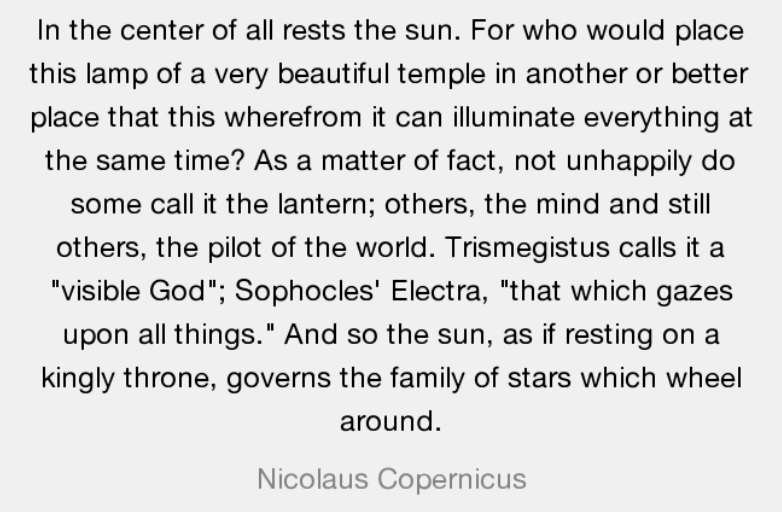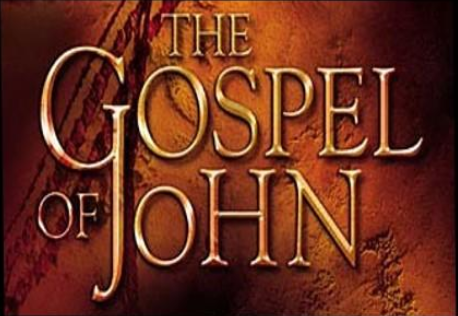I believe we are in a time of reformation. God is exposing ways in which we followers of Christ have made accommodations to paganism so that we can repent.
High Places
When the Israelites conquered the land God promised to give them, he commanded them to destroy all forms of pagan worship to protect the people from their deceptive allure.
Speak to the sons of Israel and say to them, ‘When you cross over the Jordan into the land of Canaan, 52 then you shall drive out all the inhabitants of the land from before you, and destroy all their figured stones, and destroy all their molten images and demolish all their high places; Numbers 33:51–52 (NASB95)
High places were usually elevated locations where various forms of pagan worship took place. Elevation made people feel closer to God, whose throne is above the firmament. That is why he is often called the Most High. Prior to the construction of the temple of Solomon, God allowed himself to be worshiped at such high places. It was a traditional way to worship with which the people were quite familiar and comfortable.This was genuine worship of the true God, but was not meant to last beyond the building of the temple.
Sadly, the people grew so attached to these forbidden places that they refused to renounce them after the Temple was constructed.
The people were still sacrificing on the high places, because there was no house built for the name of the LORD until those days. 1 Kings 3:2 (NASB95)
The Temple alone was designated as the God’s authorized place of worship and sacrifice.
But you shall seek the LORD at the place which the LORD your God will choose from all your tribes, to establish His name there for His dwelling, and there you shall come. 6 “There you shall bring your burnt offerings, your sacrifices, your tithes, the contribution of your hand, your votive offerings, your freewill offerings, and the firstborn of your herd and of your flock. 7 “There also you and your households shall eat before the LORD your God, and rejoice in all your undertakings in which the LORD your God has blessed you. 8 “You shall not do at all what we are doing here today, every man doing whatever is right in his own eyes; Deuteronomy 12:5–8 (NASB95)
Worshiping God is a good thing, but to disobey him by doing so at high places instead of the temple was a sin. Solomon dedicated the temple in grand fashion, but it did not take long for him to veer off course. David’s son unwisely and disobediently married foreign (non-Israelite and pagan) wives, who turned his heart away from an exclusive devotion to Yahweh. He consequently built unauthorized high places used to worship other gods. This was doubly evil.
The high places which were before Jerusalem, which were on the right of the mount of destruction which Solomon the king of Israel had built for Ashtoreth the abomination of the Sidonians, and for Chemosh the abomination of Moab, and for Milcom the abomination of the sons of Ammon, the king defiled. 2 Kings 23:13 (NASB95)
It is difficult for us to understand how someone so wise could do such a thing, but such is the allure and deception of sin. Even though very few of us feel a pull toward bowing down before a statue or other idol, we should not assume that we are immune to idolatry.
Today we have other forms of idolatry that are quite pervasive and highly esteemed by God’s people.
God is jealous for our exclusive devotion (James 4:5) and warned Israel that he would punish them unless they removed the high places. (Psalm 78:58-59, Leviticus 26:30) Over the years, evil kings of Israel and Judah were noted for their worship of false gods and devotion to the high places. Even many of the so-called “good” kings of Judah, who loved God, failed to get rid of the high places. For example, Jehoshaphat, a godly man in many ways, was such a ruler.
He walked in all the way of Asa his father; he did not turn aside from it, doing right in the sight of the LORD. However, the high places were not taken away; the people still sacrificed and burnt incense on the high places. 1 Kings 22:43 (NASB95)
Why would otherwise devoted servants of God accommodate evil in this way? Were they ignorant? Did they view this transgression as a minor thing? Were they intimidated by the people who were greatly devoted to such unauthorized worship? We can only guess. Perhaps it was all of the above.
The Bible notes three kings who more fully obeyed God by eliminating the high places: Asa, Hezekiah, and Josiah. These men had the courage to oppose high-place-loving citizens in order to please God.
God is looking for wholehearted devotion from his people. Our Lord does not want us to accommodate anything that tends to corrupt that devotion.
Instead of looking for some sort of physical idol, today we should think in terms of how we may have allowed our hearts to become enamored with the ways of the world, which are hostile to the ways of God. (James 4:4-5)
Anything that the world loves should be immediately suspect in our eyes.
The people of the world are devoted to that which is hostile to God because they are of the “flesh,” which bows down to the sinful pull of the old Adamic nature.
because the mind set on the flesh is hostile toward God; for it does not subject itself to the law of God, for it is not even able to do so, 8 and those who are in the flesh cannot please God. Romans 8:7–8 (NASB95)
All of us who have been born again, although we were recreated in the spirit, still have a connection to the flesh, as long as we live in these mortal bodies.
It is easy for us to be swayed into loving what the world loves, unless we have our guard up, understand the truth, and resist the pull. This is a very real danger.
Paul wrote…
But I am afraid that, as the serpent deceived Eve by his craftiness, your minds will be led astray from the simplicity and purity of devotion to Christ. 2 Corinthians 11:3 (NASB95)
So what does this have to do with cosmology?
The High Place of Heliocentrism
For the first 5500 years or so after creation, using Bible chronology, most people believed the Bible’s version of cosmology, which looked something like the diagram on the right. Most cultures around the world had their version of the Hebrew concept. The ancient pagan Greeks began to develop the globe version of the earth. They did not have the Bible from which to gain understanding.
 Christians up until the time of Copernicus had a geocentric view of the heavens and earth as described in Genesis Chapter One. Then came an astronomical upheaval.
Christians up until the time of Copernicus had a geocentric view of the heavens and earth as described in Genesis Chapter One. Then came an astronomical upheaval.
Copernicus, Kepler, Galileo, and Newton led what has been called the scientific revolution that changed the way people look at the cosmos and, eventually, all of life. They revolted against being “hemmed in” by God’s Word and decided to rely on their own intellect and interpretation of what they could view in the heavens with the naked eye and primitive telescopes.
This revolution began in the garden of Eden. It is based on man’s desire to go his own way and make his own decisions without reference to God’s Word. I wrote another article specifically on this topic. This time the rebellion against God gained momentum because it was clothed in scientific garb, which poses as truth greater than the Bible. These enlightenment men believed that the pursuit of truth and “science” had to free itself from religion and, in particular, the Bible. From that time until the present, secular scientists generally scoff at anyone who uses the Bible as a guide or reference in any sort of scientific inquiry. The age of reason pushed aside the revelation of God’s Word.
Worldly people love going their own way in contradiction to God and the Scripture. The sad thing is that, generally speaking, especially when it comes to cosmology, the church has gone along for the ride, seduced by the siren song that, using science, we can figure out things on our own, thank you. We don’t need the pre-scientific Bible to guide us. In order to camouflage what they were doing, people who say they believe the Bible is God’s Word cleverly decided that Genesis Chapter One and other verses and passages that describe the biblical earth and firmament are mere poetry, not to be taken literally. We learn the literal truth from science.
This brings us to the focus of this article. Many, probably most at this point, well-intentioned Christians have gone along with the world by rejecting Genesis Chapter One as a true account of creation and by accepting the anti-biblical heliocentric lie.
In fact, many are absolutely devoted to heliocentrism to the extent that they will attack and belittle anyone who dares challenge it. This is confusing because generally they are devoted to Christ and have a love for God’s Word, which only goes to show how strong the allure of science is. Instead of the Reformation motto of “sola scriptura,” we have adopted “sola scientia.”
Heliocentrism is an unauthorized and untrue version of God’s creation. To say that God made the cosmos after this fashion is unbiblical, untrue, and God-dishonoring and paves the way toward evolutionary astrophysics and atheism.
We should never say that God did something that he did not do. As I see it, this is akin to worshiping God in an unauthorized high place. Both were outside the bounds of Scripture and dishonored God.
In a previous article, I showed that heliocentrism is rooted in the occult and is a form of sun worship.
I realize that this is a “hard pill to swallow” for those indoctrinated in modern astrophysics. We have been taught that the Big Bang expanding universe which contains our solar system is proven science, but, sadly, it does not agree with what the Bible teaches nor has it been proved. It is mere conjecture at best.
This places us in a crisis of obedience. Will we accept what modern science teaches or what the Bible declares, no matter what it might cost us?
Adam and Eve failed their test in the garden when they believed the serpent’s lies above God’s truth. We dare not make the same mistake!
Genesis Chapter One states that God first created the earth, making it absolutely central. On the fourth day he created the sun, moon, and stars, placing them in the immense crystalline structure called the firmament. Nothing is said about other so-called planets. God only made the earth, sun, moon, and the stars. You can read more about this in another article I wrote about the Genesis testimony.
This means that the sun, for example, serves the earth, rather than the other way around. It also  means that the sun runs a “circuit” around the earth (Psalm 19:6), rather than the earth revolving around the sun. Consequently, the sun is much smaller and much closer than we have been led to believe. The image on the left is a cartoon, not reality.
means that the sun runs a “circuit” around the earth (Psalm 19:6), rather than the earth revolving around the sun. Consequently, the sun is much smaller and much closer than we have been led to believe. The image on the left is a cartoon, not reality.
We must either believe the Bible and reject modern astrophysics or accept modern astrophysics and consign Genesis to the realm of scientifically meaningless “poetry.” However, once we start down the road of deciding which words of God are actually true and which can be safely disregarded, we are in dangerous territory.
There is nothing in the Genesis account that allows us to classify it as poetry, except our devotion to the supposed science behind heliocentrism.
In my opinion, this is loving a pagan philosophy more that the Bible.
When Christians put their trust in the dictates and pronouncements of modern astrophysicists instead of in God’s Word, it is a form of idolatry.
Here is a simple syllogism.
- If God’s Word is true and Jesus is the truth personified (John 14:6),
- Then, any time we value and honor a lie over the truth (the Bible and Jesus), we commit idolatry.
- Therefore, if we believe the lie of heliocentrism instead of God’s Word, it is idolatry.
If this line of reasoning is correct, and I believe it is, then many Christians are inadvertent idolators.
One of the high places destroyed by Josiah was devoted to the sun god.
He did away with the idolatrous priests whom the kings of Judah had appointed to burn incense in the high places in the cities of Judah and in the surrounding area of Jerusalem, also those who burned incense to Baal, to the sun and to the moon and to the constellations and to all the host of heaven. 2 Kings 23:5 (NASB95)
He did away with the horses which the kings of Judah had given to the sun, at the entrance of the house of the LORD, by the chamber of Nathan-melech the official, which was in the precincts; and he burned the chariots of the sun with fire. 2 Kings 23:11 (NASB95)
When Copernicus published his book that theorized that the sun was the focal point of supposed planetary orbits, he paid homage to the sun god.

When the United States supposedly sent astronauts to the moon, they named the entire mission after Apollo, the sun god. His horses and chariot were part of the mission logo. This is no accident. NASA’s origins were steeped in the occult, and nearly every mission or undertaking is named with pagan allusions. But that is another topic.

I realize that most of us Christians who ascribe to heliocentrism are not conscious idolators. In fact, we are repulsed by such an idea. Nevertheless, heliocentrists inadvertently honor Satan with their pagan beliefs. To claim that God created a heliocentric solar system is misguided at best. No artist would want credit for creating something that is totally contrary to his values and intent.
The Bible says that the heavens declare the glory of God and the firmament his handiwork. (Psalm 19:1) Even Christian heliocentrists are able to glorify God when they consider the heavens, but they are doing so despite the godlessness connected with Big Bang cosmology. As I wrote elsewhere, the Big Bang – Heliocentric Worldview is essentially atheistic by design. Jesus said we can know a bad tree by the fruit it produces. It is no accident that most leading proponents of modern astrophysics are atheists.
 The Genesis version of cosmology requires us to recognize the handiwork of God. There is no way that we live within the protection of the firmament unless God created it that way. It could never have happened via the chaos of an explosion. Just as surely as the turtle pictured on the left did not get on top of the fence post by himself, neither did the firmament create itself.
The Genesis version of cosmology requires us to recognize the handiwork of God. There is no way that we live within the protection of the firmament unless God created it that way. It could never have happened via the chaos of an explosion. Just as surely as the turtle pictured on the left did not get on top of the fence post by himself, neither did the firmament create itself.
It is extremely difficult to be an atheist when God’s true version of creation is recognized, and that is exactly why it is so important for the church to abandon pagan heliocentrism and embrace the truth.
Biblical cosmology can help people turn to God. We need to be different from the world system. We need to stand for God’s truth. The world may laugh at us for holding to our conviction that the Bible is true, but perhaps they will respect us for being steadfast to what the Bible teaches.
I think the world already laughs at us when we try to blend modern astrophysics with the Bible. They know it is a contradiction and an accommodation.
My prayer is that God will lift the veil of deception. May the Lord remove the “scales” from our eyes so that we can finally see the truth about his glorious creation and tear down the high place of heliocentrism. The good news is that the Bible is 100% trustworthy and true regarding everything it says, even cosmology. How gloriously comforting it is to know that God is looking down on us from his throne above the firmament. He is very near indeed. One day that firmament will be rolled back like a scroll, revealing Christ in all his glory. The entire earth, this terrestrial plane, shall see him all at once! Come, Lord Jesus!
 Our love for “outer space” is actually a form of rebellion against God in two ways. First of all, it does not even exist. Everything beyond the dome of the firmament is an unknown region, perhaps what the Bible calls the “third heaven,” where God’s throne is located, or perhaps it is the region Jesus called “outer darkness,” a place of judgment, sorrow, and regret. When we devote so much time, effort, focus, and money on an imaginary place, created by our own minds in opposition to what the Bible teaches, it is an escape from reality rooted in rebellion against the truth and God himself.
Our love for “outer space” is actually a form of rebellion against God in two ways. First of all, it does not even exist. Everything beyond the dome of the firmament is an unknown region, perhaps what the Bible calls the “third heaven,” where God’s throne is located, or perhaps it is the region Jesus called “outer darkness,” a place of judgment, sorrow, and regret. When we devote so much time, effort, focus, and money on an imaginary place, created by our own minds in opposition to what the Bible teaches, it is an escape from reality rooted in rebellion against the truth and God himself. 


 Christians up until the time of Copernicus had a geocentric view of the heavens and earth as described in Genesis Chapter One. Then came an astronomical upheaval.
Christians up until the time of Copernicus had a geocentric view of the heavens and earth as described in Genesis Chapter One. Then came an astronomical upheaval. means that the sun runs a “circuit” around the earth (Psalm 19:6), rather than the earth revolving around the sun. Consequently, the sun is much smaller and much closer than we have been led to believe. The image on the left is a cartoon, not reality.
means that the sun runs a “circuit” around the earth (Psalm 19:6), rather than the earth revolving around the sun. Consequently, the sun is much smaller and much closer than we have been led to believe. The image on the left is a cartoon, not reality.

 The Genesis version of cosmology requires us to recognize the handiwork of God. There is no way that we live within the protection of the firmament unless God created it that way. It could never have happened via the chaos of an explosion. Just as surely as the turtle pictured on the left did not get on top of the fence post by himself, neither did the firmament create itself.
The Genesis version of cosmology requires us to recognize the handiwork of God. There is no way that we live within the protection of the firmament unless God created it that way. It could never have happened via the chaos of an explosion. Just as surely as the turtle pictured on the left did not get on top of the fence post by himself, neither did the firmament create itself. NASA computer generated image
NASA computer generated image Photograph
Photograph What Copernicus began was later buttressed by such “luminaries” as Newton and Galileo. Today, heliocentrism has budded and flowered into the Big Bang evolutionary view of the “universe” that no longer requires a creator God. God’s glory has taken a back seat to man’s intellect. What began as a rearrangement of the solar system has become an unbelievable tapestry of interconnected theories that posit multiple self-creating ever-expanding universes, in which God is irrelevant, if there at all, and the earth and humanity are insignificant and have no ultimate meaning or purpose.
What Copernicus began was later buttressed by such “luminaries” as Newton and Galileo. Today, heliocentrism has budded and flowered into the Big Bang evolutionary view of the “universe” that no longer requires a creator God. God’s glory has taken a back seat to man’s intellect. What began as a rearrangement of the solar system has become an unbelievable tapestry of interconnected theories that posit multiple self-creating ever-expanding universes, in which God is irrelevant, if there at all, and the earth and humanity are insignificant and have no ultimate meaning or purpose.